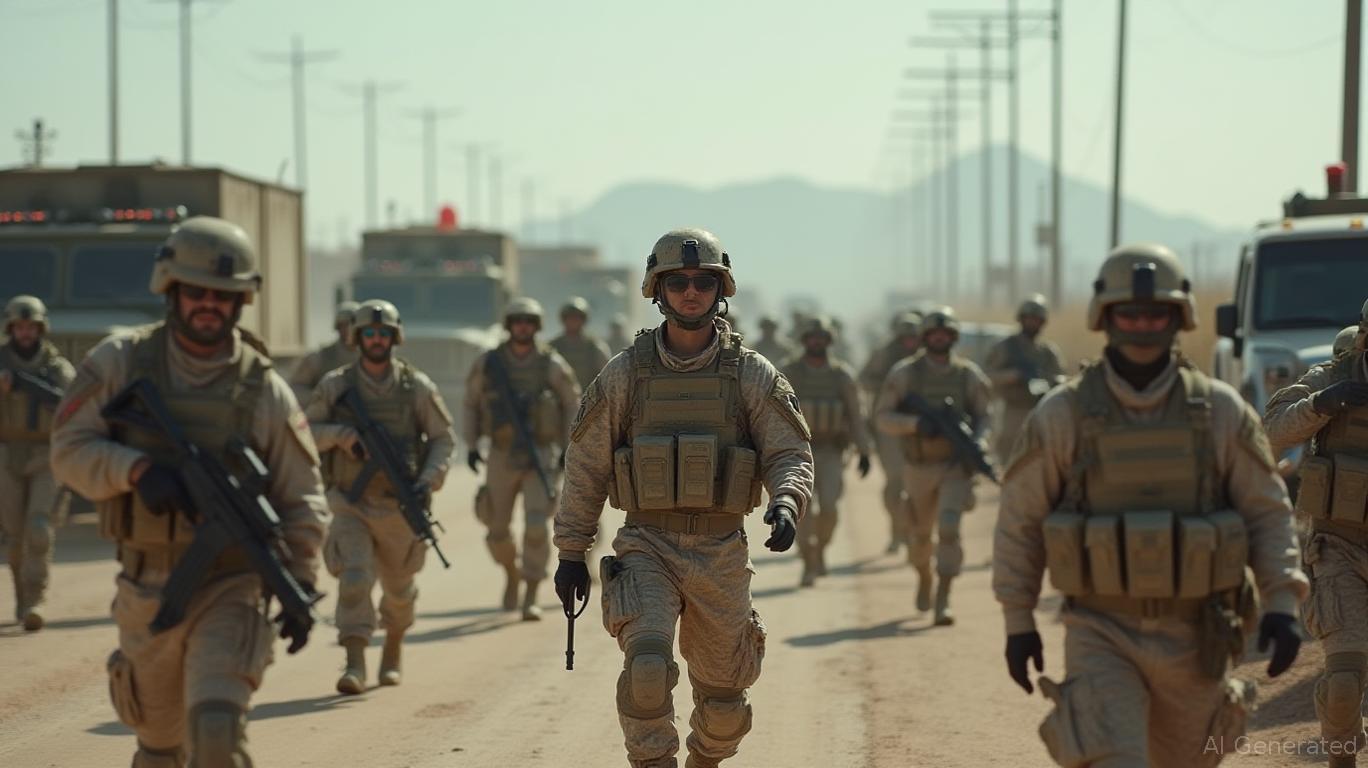U.S. Armed Forces' Operations Against Cartels Ignite Legal and Diplomatic Controversies
- U.S. military intensifies anti-cartel strikes in Pacific/Caribbean, killing 14, targeting groups like Venezuela’s Tren de Aragua and Colombian cartels. - Latin American leaders condemn attacks as illegal/ineffective; U.S. lawmakers challenge legality, citing lack of transparency and congressional authority. - Trump threatens Venezuela land strikes; Colombia recalls ambassador after labeling Petro a "thug," straining bilateral ties. - Analysts warn strikes may shift trafficking routes; bipartisan senators
The U.S. military has ramped up its campaign against suspected drug trafficking in the Pacific and Caribbean, with Defense Secretary Pete Hegseth revealing that three recent operations in the area resulted in 14 fatalities. These actions, which are part of a larger initiative targeting transnational criminal organizations (TCOs), have sparked strong backlash from Latin American officials and prompted legal concerns among members of Congress.

In a post on social media, Hegseth described the strikes as a necessary step up in action, claiming that cartels "have caused more American deaths than Al-Qaeda" and would be regarded as "unlawful combatants." The military targeted boats associated with groups such as Venezuela’s Tren de Aragua and Colombian cartels, and the Pentagon stated these operations disrupted drug smuggling in international waters. Hegseth also released a video depicting a nighttime attack on a small vessel, which he said was run by a group designated as a terrorist organization, as an
The military escalation features the deployment of the USS Gerald R. Ford Carrier Strike Group to the Caribbean, a move Pentagon spokesperson Sean Parnell described as a demonstration of strength to "detect, monitor, and disrupt illicit actors," as
These strikes have put a strain on U.S. relations with Colombia, whose left-leaning President Gustavo Petro denounced the actions as both unlawful and ineffective. "Destroying boats is simple, but it doesn’t address the root causes of drug trafficking," Petro told
Legal opposition to the strikes is mounting. Democratic lawmakers, including Senator Adam Schiff, have labeled the actions "illegal" and criticized the lack of openness. Senator Rand Paul (R-Ky.) argued that the strikes circumvent Congress’s authority to declare war, stating, "We don’t just summarily execute people," as reported by the Los Angeles Times. The Pentagon has released little evidence to support claims that the targeted boats were carrying drugs or that those killed were cartel members. Two survivors from a previous strike were sent back to Ecuador and Colombia without facing charges,
The administration’s approach, modeled after counterterrorism tactics, has drawn parallels to the fight against al-Qaeda. Hegseth claimed that cartels "are waging war on our border and our citizens," while Trump described the campaign as a "national defense" necessity, according to the Air & Space Forces report. Still, experts warn that these strikes may simply push traffickers to shift their routes rather than reduce the overall supply. A former CIA station chief told
As the U.S. continues to expand its military operations—now totaling 10 strikes since September—opposition in Congress is growing. Lawmakers from both parties are preparing legislation to prohibit military action in Venezuela without congressional consent, according to a Los Angeles Times article. With tensions rising and legal disputes intensifying, the campaign highlights the Trump administration’s uncompromising stance on what it sees as a critical threat.
---
Disclaimer: The content of this article solely reflects the author's opinion and does not represent the platform in any capacity. This article is not intended to serve as a reference for making investment decisions.
You may also like
LG Uplus is the most recent telecommunications provider in South Korea to acknowledge a cybersecurity breach

Trader Times Ethereum Bottom Perfectly, Earns $29 Million Profit
Quick Take Summary is AI generated, newsroom reviewed. Trader bought Ethereum twice at exact market bottoms. Wallet 0x7422F5F528Cc36eA48F6cD8cdA5a9816E4573ede shows two dip buys. Profit reached about $29 million with 150% total gain. The trades reflect skillful market timing, not random luck.References X Post Reference